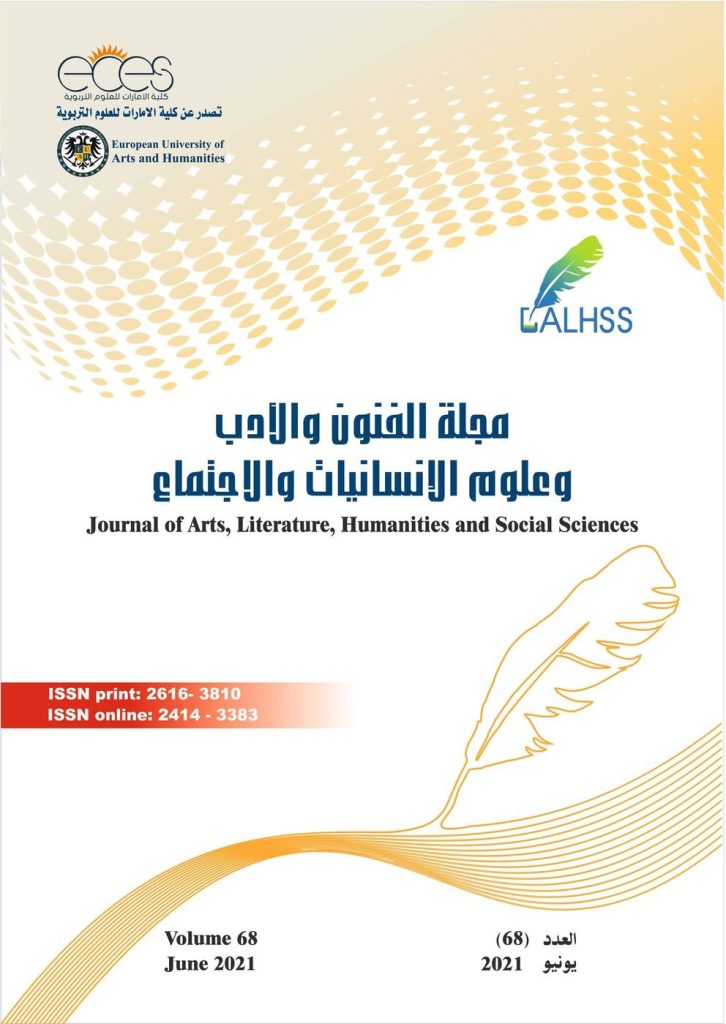
التحليل الطبقى السببىCausal Layered Analysis (CLA) :منهجية جديدة للدراسات المستقبلية في التربية: المرتکزات الفکرية والإجراءات التطبيقية “دراسة تحليلية نقدية” Causal Layered Analysis (CLA): A New Methodology for Future Studies in Education: Intellectual Foundations and Applied Procedures: Critical Analysis Study pdf
ملخص الدراسة:
استهدفت الدراسة، من خلال توظيف المنهج الوصفى وأسلوب التحليل الفلسفى، عرض وتحليل منهجية التحليل الطبقى السببىCausal Layered Analysis (CLA) التي طرحها عالم المستقبليات سهيل عناية الله Sohail Inayatullah،کنظرية ومنهجية کيفية جديدة ومدخل متعدد المستويات approachmultilevelللدراسات المستقبلية في مجال التربية، ويعدالتحليل الطبقى السببى أول نظرية ومنهجية وتقنية جديدة لإجراء البحوث والدراسات المستقبلية منذ ظهور إسلوب دلفي، منذ ما يقرب من أربعين عامًا تقريبًا لمقاربــة المستقبل، والتي اتسعت مجالات استخدامها في الدراسات المستقبلية خلال السنوات العشرة الماضية. وتوصلت الدراسة إلى أن منهجية التحليل الطبقى السببي تعد منهجية بالغة الأهمية لمجال التربية؛ حيث أنها کنظرية ومنهجية انطلقت من الفکر النقدى وفلسفة ما بعد البنيوية مع الاهتمام بفکر فوکو Foucault، وترى أن هناک مستويات مختلفة من الواقع وطرق المعرفة. وترتکز على الدمج التکاملى بين أساليب التعلم التجريبية، والتفسيرية، والنقدية، والواقعية. وکمنهجية لم يقتصر استخدامها على التنبؤ بالمستقبل فحسب، بل اتسعت لبناء مساحات مجاوزة لبناء مستقبلات بديلة. کذلک تجاوزت المنهجية أوجه القصور في مناهج وأساليب الاستشراف في مقارباتها المنهجية للمشکلات والظواهر المختلفة؛ والتي تمثلت في ضعف قدرة هذه الأساليب والمنهجيات على تفکيک الخطاباتDiscourses، والنظرة للعالم Worldview (المنظومة القيمية التي تشکل فهم الأفراد للعالم)، والأيديولوجياتideologies، والصور المجازية Metaphors، والتي تمثل مرتکزا فکريا وإجرائيا في منهجية التحليل السببى. کما ارتکزت المنهجية على التکامل والاندماج بين أساليب مختلفة، والجمع بين تقاليد بحثية متباينة، لتحقق التوازن بين وجهات النظر الداخلية المتعمقة، ووجهات النظر للعالم الخارجي، وهذا ما تفردت به المنهجية عن أساليب،ومنهجيات، وتقنيات الدراسات المستقبلية الأخرى التي اقتصرت على وجهات النظر الخارجية فقط. وترى الباحثة أن هذه الدراسة وما توصلت إليه من نتائج يمکن أن تثرى مجال الدراسات المستقبلية في التربية نظرا لحداثة الموضوع، ولاستکمال الفائدة أوصت الباحثة بإجراء المزيد من الدراسات.
By employing the descriptive approach and the method of philosophical analysis, the study aimed at presenting and analyzing the methodology of Causal Layered Analysis (CLA) that developed by the futurist, Sohail Inayatullah, as a new theory and methodology and a multi-level approach to Future Studies in the field of Education. Causal Layered Analysis is considered to be the first new theory, methodology and technique for conducting Future Studies since the emergence of the Delphi method, nearly forty years ago. Causal Layered Analysis has been employed in various fields during the past ten years. The study concluded that the Causal Layered Analysis is a very important methodology for Future Studies in the field of Education, as it is a theory and methodology that is based on critical thought and post-structural philosophy with an interest in Foucault thought. Causal Layered Analysis focuses on the integrative integration of experiential, interpretative, critical and realistic learning styles. As a methodology, it is not used only to predict the future, but also to expand spaces to build alternative scenarios. In addition, the methodology also exceeded the limitations of Future Studies approaches and methods such as their weak ability of unpacking up discourses, worldview, ideologies, and metaphors which constitute the intellectual and procedural basis in the causal analysis methodology. The methodology is also based on integration between different methods, and combining different research traditions to achieve a balance between in-depth internal views and perspectives of the external world, and this is what makes the methodology unique compared to other methods, and techniques of Future Studies that are limited toemploying external views only. The researcher believes that this study and its findings can enrich the field of Future Studies in Education due to its novelty. The researcher recommended conducting more studies according to the proposed procedural framework for employing the methodology.
خصائص الدراسة
-
المؤلف
عودة ، هناء عودة خضرى أحمد
-
سنة النشر
02 - 07 - 2019
-
الناشر:
جامعة الأزهر، کلية التربية
-
المجلد/العدد:
المجلد: 38 العدد 184ج3
-
المصدر:
التربية (الأزهر): مجلة علمية محکمة للبحوث التربوية والنفسية والاجتماعية)
-
الصفحات:
629 - 700
-
نوع المحتوى:
بحث علمي
-
اللغة:
العربية
-
ISSN:
1110-323X
-
محكمة:
نعم
-
الدولة:
مصر
-
النص:
دراسة كاملة
-
نوع الملف:
pdf


